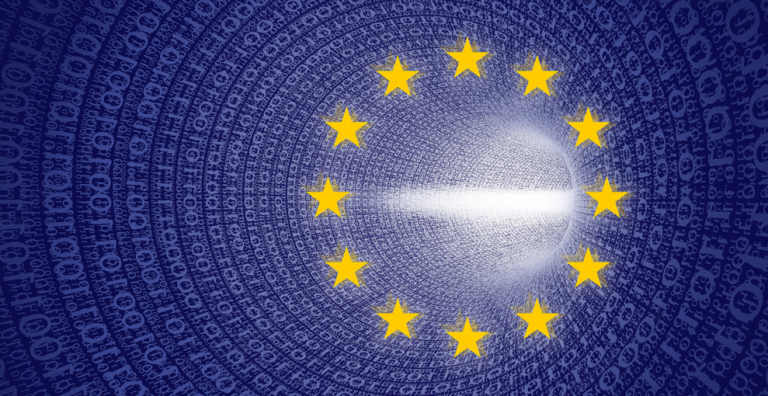Data Governance Act, what the regulation in cooking in Brussels provides

The EU Commission has proposed the Data Governance Act, a regulation that should lay the foundations for a new way of managing industrial data and beyond
The EU wants to establish itself as a leader in data matters. After personal data, Brussels moves on to industrial data regulation.
The EU Commission has proposed ogg the the Data Governance Act, a regulation should lay the foundation for a new way to manage data at European level, which respects the values and principles of the EU, such as the protection of personal data (GDPR) , consumer protection and competition law.
“We have been brave enough to set our own rules in the sphere of personal data and this is what we need to do now for government, public and industrial data,” said Internal Market Commissioner Thierry Breton.
A European governance for data therefore in line with the EU principles for the protection of personal information, consumers and competition rules.
“With the ever-growing role of industrial data in our economy, Europe needs an open but sovereign single data market,” urges Breton.
All the details on the rules that European legislators are working on to support European businesses and governments to safely unlock the value of industrial and public data.
THE OBJECTIVE OF THE DATA GOVERNANCE ACT
The aim is to “exploit better” the potential of an ever-increasing amount of data, while remaining within a reliable European framework. The amount of data generated by public bodies, businesses and citizens is constantly increasing and, according to forecasts, between 2018 and 2025 it should increase fivefold. The new rules, according to the Commission, will make it possible to exploit this potential and pave the way for the creation of European sectoral data spaces for the benefit of society, businesses and citizens.
For Brussels, the new measures could increase the annual economic value of data sharing from € 7 billion to € 11 billion by 2028.
WHAT IS THE NEW DATA REGULATION ON WHICH THE EU COMMISSION WORKS
To ensure neutrality, the intermediary cannot process the data on its own behalf (for example by selling it to another company or using the data to create a product based on it) and will have to comply with strict requirements.
The regulation includes a number of measures aimed at increasing trust in data sharing, as mistrust is currently a major obstacle and results in high costs.
New neutrality rules are foreseen to allow new data intermediaries to become reliable organizers of data sharing.
HEALTH DATA
The regulation also provides for measures to encourage the re-use of some data held by the public sector. For example, the reuse of health data could advance the search for treatments for rare or chronic diseases. Solutions are envisaged to give Europeans control over the use of the data they generate, making it easier and safer for businesses and individuals to voluntarily make their data available for the common good.
THE ALTERNATIVE TO THE DATA PROCESSING PRACTICES OF THE TECH PLATFORMS
According to the Commission, the regulation offers "an alternative model" to the data processing practices of large (mostly US) technology platforms, which have high market power because their business models involve the control of large amounts of data.
At the basis of the new EU approach will be the neutrality and transparency of data intermediaries (the entities that organize the sharing or pooling of data), which will serve to increase user confidence.
TOOLS TO PROTECT CITIZENS AND BUSINESSES
Margrethe Vestager, executive vice president, explains that “citizens and businesses are not obliged to share all their data. But if they do and share sensitive data, they should be able to trust and be sure that the data will be protected ”. “We want to give them the tools they need to maintain control of their data and increase their confidence that data is processed in compliance with European values and fundamental rights”, concludes Vestager.
SINGLE DATA MARKET, OPEN BUT SOVEREIGN
“Given the increasing role that data plays in our economy, Europe needs an open but sovereign single data market,” Breton stressed. "When paired with the right investments and essential infrastructure, the regulation will help Europe establish itself as a leading continent in data matters."
The ambition is to make Europe “the number one continent in the world for data processing”.
ALSO THE DIGITAL SERVICES ACT IS COMING
Finally, Commissioner Breton also touched upon other interlinked elements of the political strategy that lawmakers see as crucial for providing a functional data framework. Namely the Digital Services Act and the Digital Markets Act which will be defined in detail early next month.
According to Breton, the Digital Services Act will put “a clear responsibility and obligation on the platforms and contents that are disseminated”.
This is a machine translation from Italian language of a post published on Start Magazine at the URL https://www.startmag.it/mondo/data-governance-act-che-cosa-prevede-il-regolamento-in-cottura-a-bruxelles/ on Wed, 25 Nov 2020 14:42:11 +0000.
